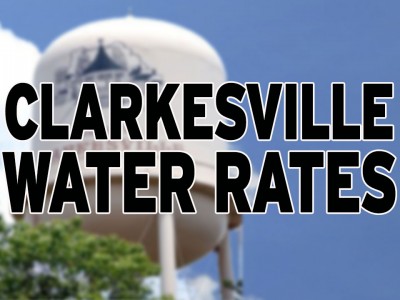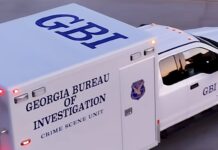
Water and Sewer bills in Clarkesville could rise depending on an upcoming comparison of how much customers pay for service and how much it actually costs the city to provide the services.
The city is moving forward with a Water and Sewer Rate Study. City Manager Barbara Kesler says they need to do it before they can issue bonds, “Bonds to pay off all of the GEFA (Georgia Environmental Finance Authority) notes that we have outstanding and to get the money that we need to do the repairs to the reservoir and the remaining upgrades that we need to do at the water treatment plant.”
In order for Clarkesville to get a good rating on their water and sewer bonds, potential investors want to know they’re charging enough for the service to pay off the debt. Moody’s, one of the world’s foremost ratings companies, can downgrade a government’s bonds for things like “weak management practices” and “poor revenue projections.” A downgrade would mean higher interest rates and a higher cost for taxpayers in the long run.
The study will determine if the city is charging customers enough to sustain the system. It will also look at other factors.
Planned Study of Clarkesville Water and Sewer Rates
- Review of current water and sewer budgets, expenses and revenues and an assessment of the fixed and variable costs of providing service to customers (both inside and outside the city)
- Documentation of historic customer water and sewer usage and trends
- Analysis of the adequacy of the existing rate structure
- Comparison of other similarly sized utilities’ rates to current Clarkesville rates
- Development of a revenue model calibrated based on current usage
- Preparation of several possible water and sewer rate schedules with revenue projections the city can consider that address the findings of the study.
If the study finds the city’s revenue model is unsustainable, customer rates must rise. The process will take about 4 weeks but won’t start right away due to a technicality.
Three councilmembers (Leigh Johnston, Barrie Aycock, and Franklin Brown) and Mayor Terry Greene were all involved in the rate study discussion but they did not technically have a quorum present. Councilmember Johnston was there via speaker phone from Savannah and the city’s current policy does not allow for a vote on an expenditure unless a quorum of the council is physically present in the room.
While they did not vote, all present came to a consensus to hire G. Ben Turnipseed Engineers from Atlanta to conduct the rate study at a cost of $7500. City Manager Kesler can proceed with the preliminary parts of the agreement but Council must formerly vote on implementing the contract at a future meeting.






